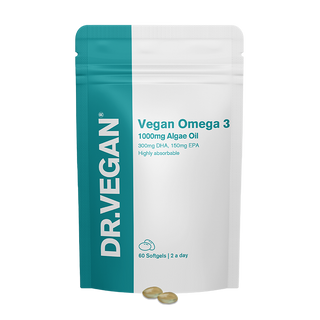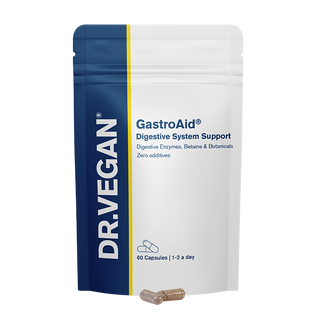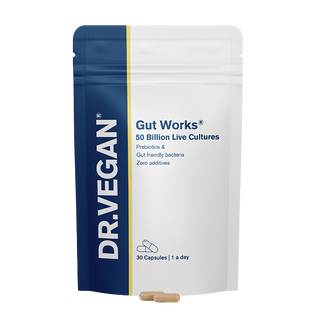Most common GI (gastrointestinal) conditions explained

Gastrointestinal (GI) conditions are disorders that affect the gut and digestive tract. The digestive tract consists of the oesophagus, the stomach and intestines. GI conditions can be mild, moderate or severe and can impact digestion, nutrient absorption, and overall wellbeing. Symptoms like abdominal pain, bloating, heartburn, or changes in bowel habits are common indicators of GI issues and can seriously decrease someone's quality of life. Read more about the signs of an unhealthy gut.
Up to 40% of people worldwide1 may experience digestive disorders, including Irritable Bowel Syndrome (IBS), at some point in their lives. Most worryingly, many individuals remain undiagnosed, meaning they suffer from discomfort without proper treatment. While gut conditions vary widely, they all share the potential to affect daily life.
Irritable bowel syndrome (IBS)
IBS is a collection of symptoms such as abdominal pain, bloating, diarrhoea, constipation, or a combination of both. Although IBS can cause great discomfort, it does not cause damage to the digestive tract. Research shows 46%* of people regularly suffer symptoms of poor gut health, and 11%* experience extreme symptoms of poor gut health, many of which are symptoms of IBS.
Dietary and lifestyle interventions:
Low-FODMAP diets are often effective in reducing symptoms. Exercise and other stress management techniques such as mindfulness or yoga can help. Supplemental probiotics, peppermint oil, and soluble fibre like psyllium husk may help. Discover the best probiotics for IBS.
Vegan Omega 3

Inflammatory bowel disease (IBD)
IBD includes the conditions Crohn’s disease and ulcerative colitis, which are chronic conditions that cause inflammation and damage to the digestive tract. Unlike IBS, IBD involves immune system dysfunction and can lead to serious complications. IBD symptoms may include persistent diarrhoea or urgency, abdominal pain and cramping, fatigue, fever, unexplained weight loss, and blood in the stool.
Dietary and lifestyle interventions:
Anti-inflammatory diets, such as Mediterranean or specific carbohydrate diets (SCD), can help. Learn more about the Mediterranean diet. Stress reduction and adequate rest are essential. Research shows 38%* of people experience worsening gut health issues as a symptom of stress and anxiety. Supplemental Omega 3 fatty acids, Vitamin D, and probiotics can support gut health and reduce inflammation.
Dyspepsia (indigestion)
Dyspepsia is the persistent or recurring pain or discomfort in the stomach associated with bloating, nausea, or belching. Symptoms may include acid reflux, feeling uncomfortably full after eating, as well as nausea or mild bloating.
Support strategies:
Avoid trigger foods, which may include spicy foods or fatty foods. You may also enjoy reading about the best foods to eat and what to avoid for acid reflux. Eat smaller and more frequent meals. Avoid lying down immediately after eating. Supplemental digestive enzymes, amla, German chamomile and caraway may ease symptoms.
Gastroesophageal reflux disease (GORD)
GORD (recurrent acid reflux) happens when stomach acid flows back into the oesophagus, causing irritation. GORD is a chronic condition that may lead to long-term complications if it is left untreated. Symptoms include heartburn, regurgitation of food or sour liquid, as well as difficulty swallowing.
Dietary and lifestyle interventions:
Avoid trigger foods like caffeine, alcohol, chocolate, and spicy foods. Keep your head raised when in bed and avoid eating late at night. You may enjoy our article 'Best alternatives to caffeine'.
Leaky gut syndrome
Leaky gut happens when the intestinal lining becomes permeable, which then allows toxins, microbes, and undigested food particles to pass into the bloodstream. This condition is associated with inflammation and a variety of chronic illnesses. Symptoms include bloating, gas, abdominal discomfort, food sensitivities, allergies, fatigue, brain fog and joint pain. You may also be interested in reading 'How to improve brain fog' and 'How to beat chronic fatigue'.
Dietary and lifestyle interventions:
Remove processed foods, sugar, and potential allergens, including gluten and dairy, for a period of time. Learn more about ultra-processed foods and signs of gluten intolerance. Stress management and sleep are essential for healing. Research shows that 29%* of people experience gut health issues as a result of poor sleep. Supplemental zinc and probiotics are needed for intestinal repair and rebalancing of the gut flora. Learn more in 'Why Zinc is so important'.
View our range of award-winning probiotics, vitamins and supplements.
You may also enjoy reading:
- Why you should improve your gut health
- 6 signs of an unhealthy gut
- Best probiotics for IBS
- Why your gut is your second brain
*This article contains data from UK surveys conducted by DR.VEGAN®. All survey findings reflect our own research efforts and have not been influenced or verified by any external organisations or third-party entities.
References
1. Sperber, Ami D., et al. "Worldwide prevalence and burden of functional gastrointestinal disorders, results of Rome Foundation Global Study." Gastroenterology 160.1 (2021)


















